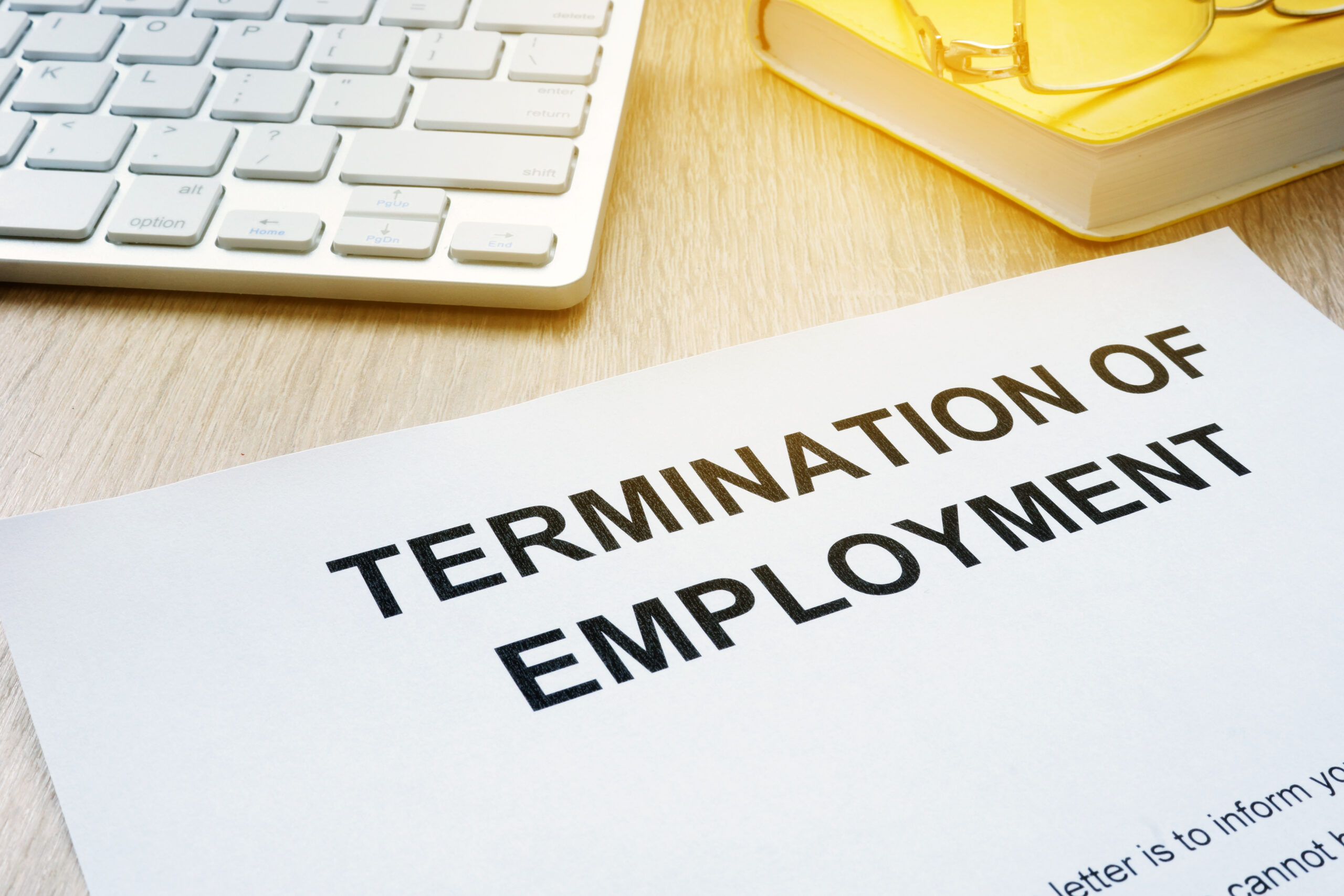May 2024 – Rosemary Saad & Helen Friedman
Part 1
Employers and employees often face legal issues when an employment contract is coming to an end.
In the first of a series of articles, we will explore some of these issues, including the grounds for lawfully terminating an employment contract and the circumstances which may give rise to a claim for unfair dismissal or unlawful termination against the employer.
Grounds for Lawfully Terminating an Employment Contract
There are various circumstances which may bring about the lawful termination of an employment contract. These include where the employee:
- resigns in accordance with the legal requirements of their employment contract;
- is dismissed due to misconduct: for example, when an employee engages in behaviour that violates company policies, breaches the terms of their employment agreement, or is unlawful;
- is dismissed due to poor performance: for example, there is a lack of skill, care, diligence, or quality in the employee’s work;
- is dismissed due to a lack of capacity: for example, an employee is unable to meet the inherent requirements of their role; or
- is dismissed due to the role becoming redundant: for example, the employee’s role is no longer required or the employer is facing insolvency or bankruptcy. Redundancy will be discussed in more detail in a later article in this series.
Unfair Dismissal by the Employer
A general rule of thumb (with some exceptions) is that an employer must be able to demonstrate they had lawful grounds for terminating an employment contract. If not, an employee may make a claim against the employer for unfair dismissal, i.e., a dismissal that is “harsh, unjust, or unreasonable”.
What constitutes “harsh, unjust, or unreasonable” depends on the unique circumstances of each case. The Fair Work Commission may ask a number of questions when determining this issue including the following:
- Was there a valid reason for the dismissal related to the employee’s capacity or conduct?;
- Was the employee notified of the reason for dismissal and given an opportunity to respond?;
- Was the employee allowed to have a support person present during discussions about the dismissal?;
- Was the employee previously warned about unsatisfactory performance?;
Not all employees are able to make a claim for unfair dismissal. Claims need to be made within 21 days of the dismissal taking effect and to be eligible the employee must be able to demonstrate:
- they were employed in the private sector;
- they were covered by the national workplace relations system (i.e. most but not all employees in the Australian private sector); and
- they were employed for at least 6 months in a large business (one with 15 or more employees) or for at least 12 months in a small business (one with fewer than 15 employees).
Small business employers may be protected from an unfair dismissal claim if they can demonstrate they followed the Small Business Fair Dismissal Code.
A dismissal that fails to meet the criteria of fairness may give rise to remedies being awarded in favour of the employee including reinstatement or compensation.
It is crucial to be aware of the high-income threshold, which operates as a limit to an employee’s eligibility to be protected from unfair dismissal. From 1 July 2023, it is $167,500. The maximum compensation that can be awarded by the Fair Work Commission is $83,750 for a dismissal that occurred on or after 1 July 2023.
Unlawful Termination
A remaining issue concerning the termination of an employment contract is what is known as “unlawful termination”. This occurs when an employee is dismissed for specific reasons that are prohibited under the Fair Work Act 2009 (Cth) and include dismissal on the basis of:
- Discrimination;
- Trade union activity;
- Absences due to illness or parental leave;
- Exercising workplace rights; or
- Another ‘protected right’ in the employment sector.
Termination of an employment contract can be a complex process depending on the circumstances of the relevant employer and employee. If you have any questions or concerns about this or any other employment-related issue please contact Harris Freidman Lawyers on 02 9231 2466 to discuss your legal obligations.

